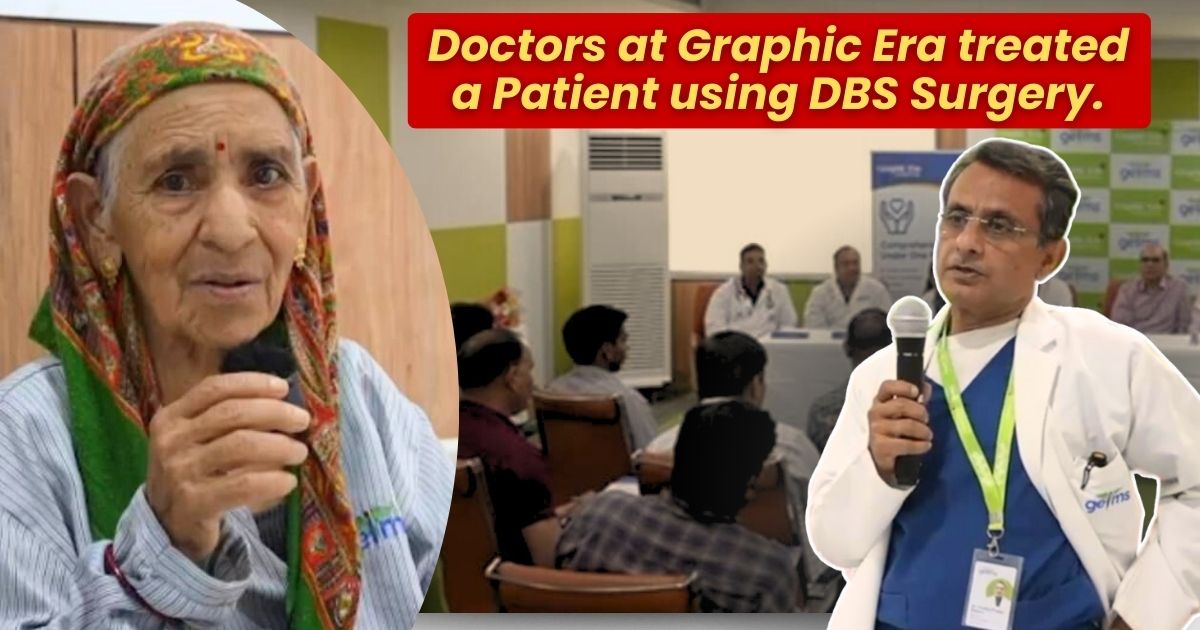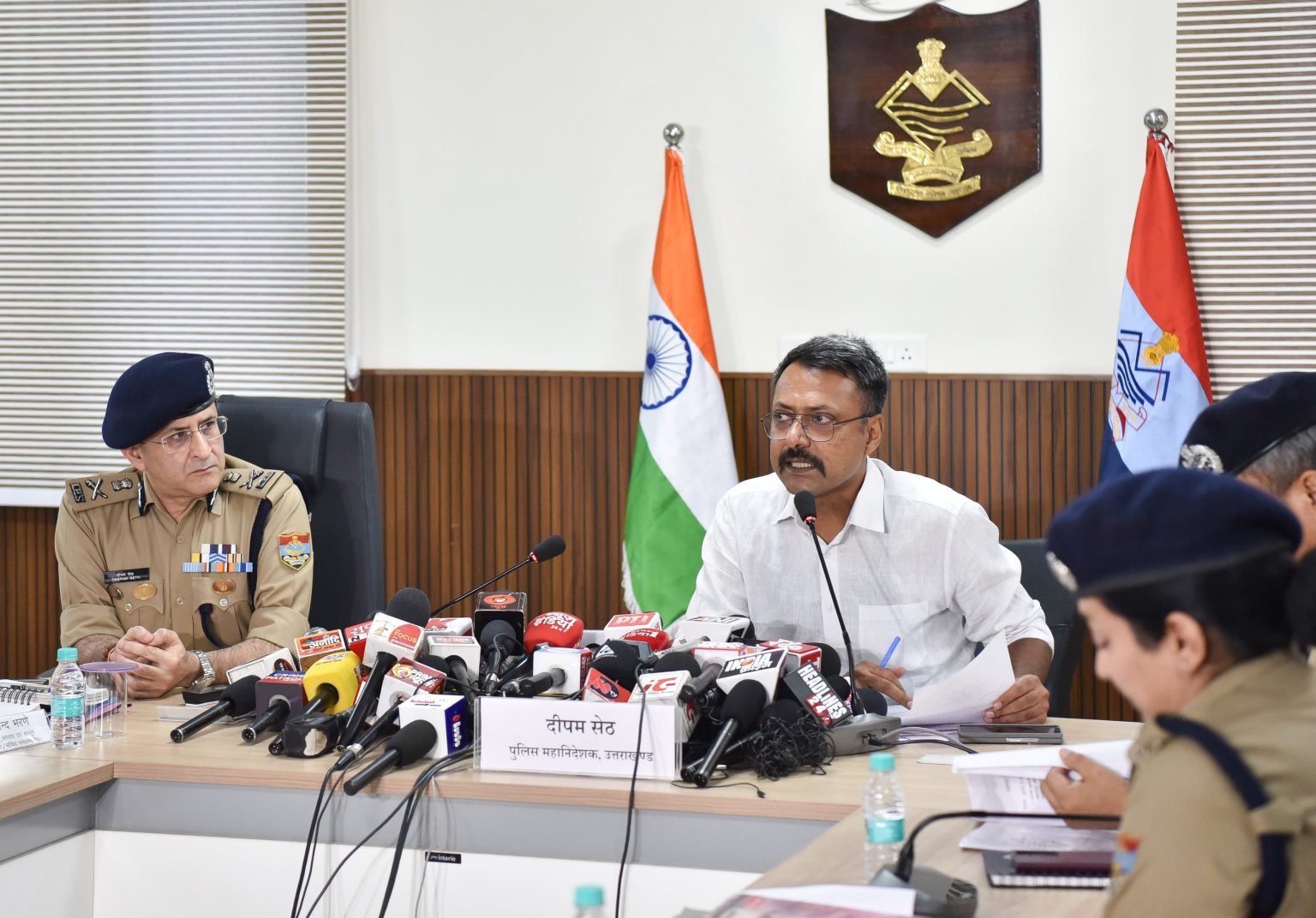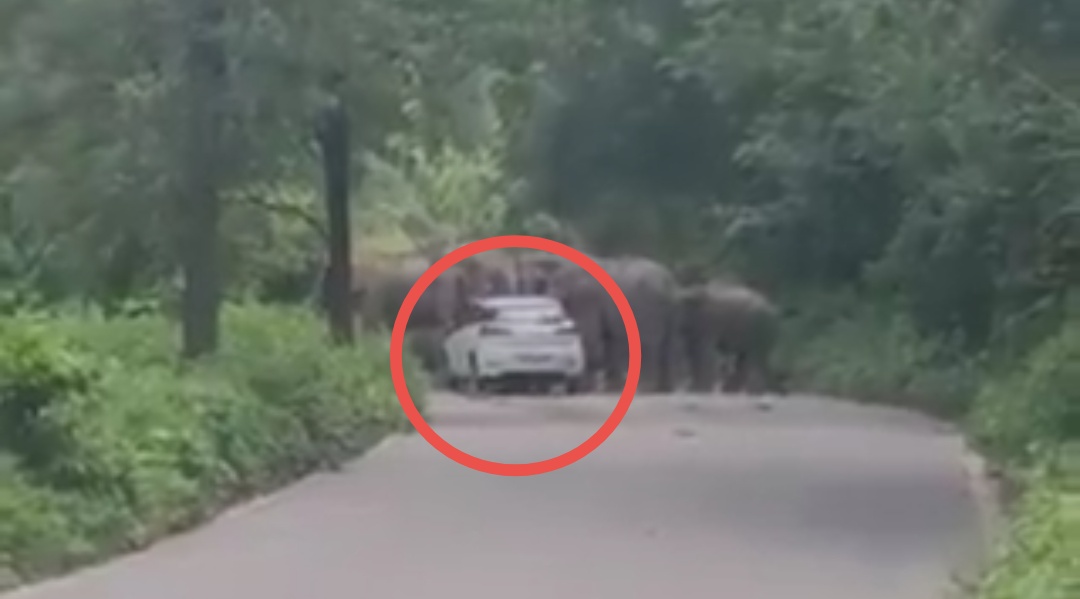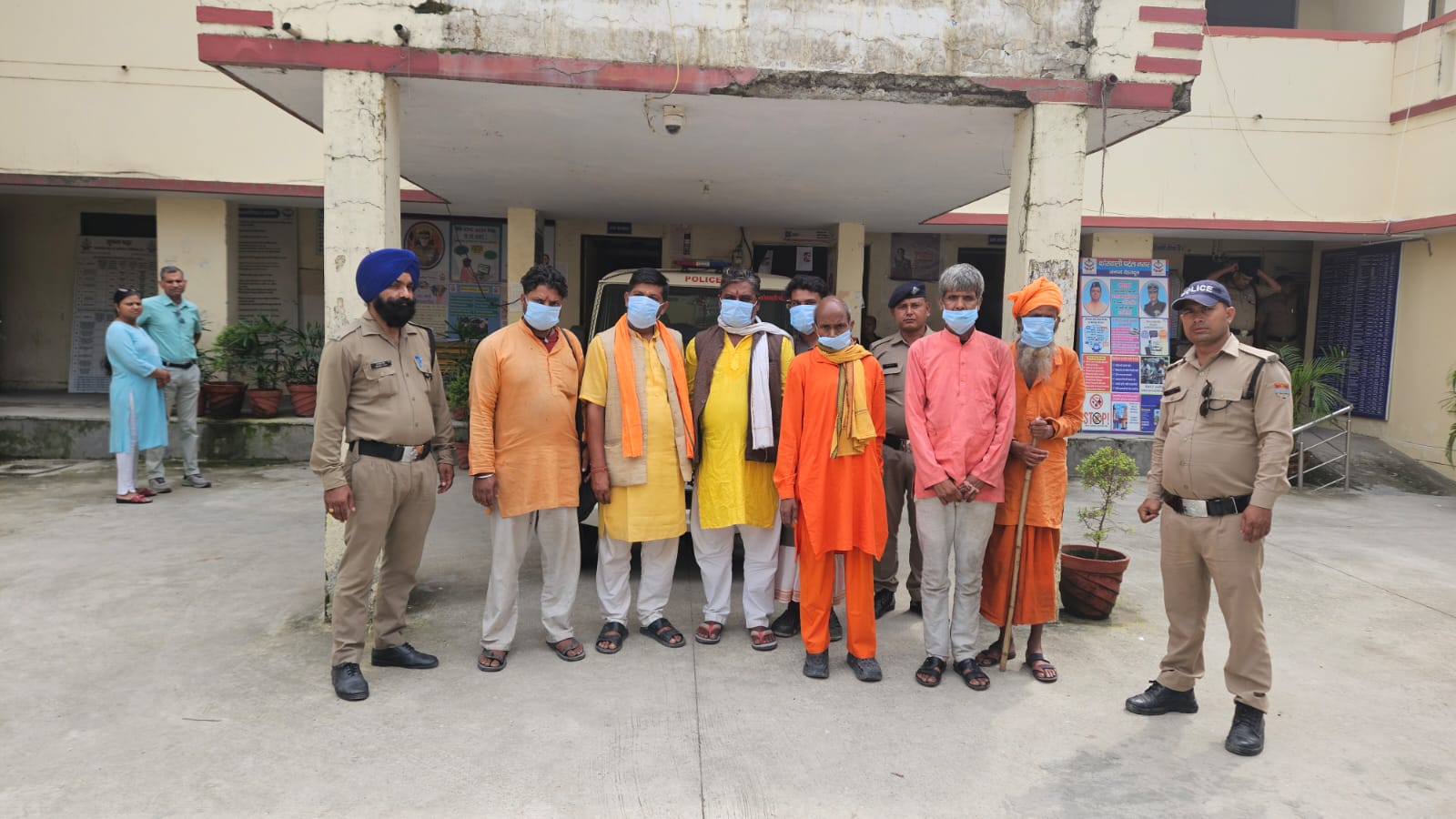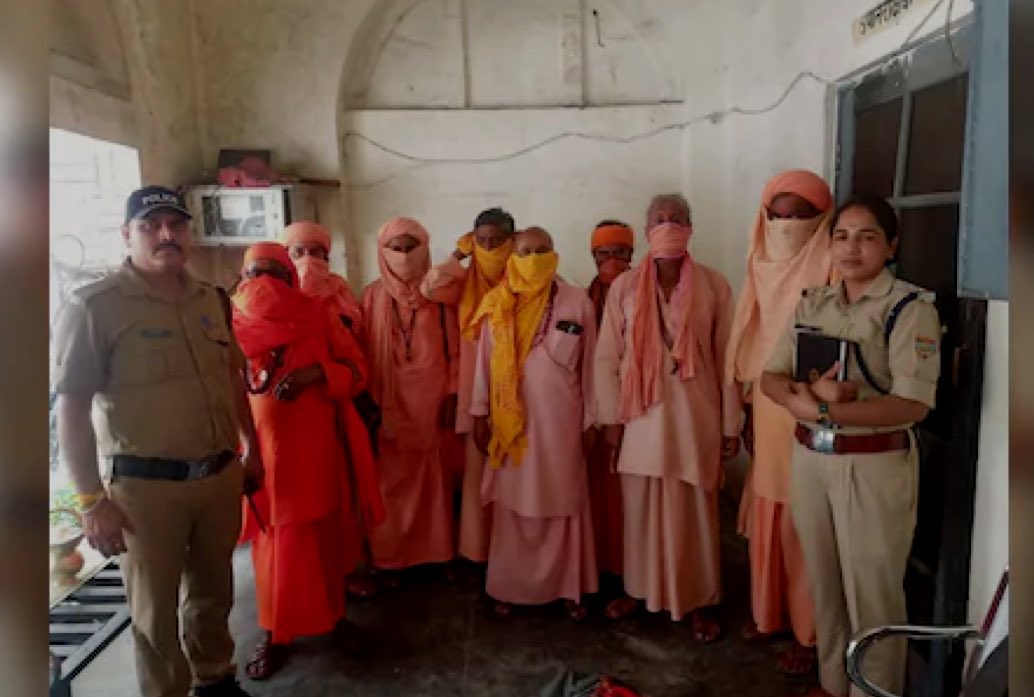Dehradun, April 9 – Doctors at Graphic Era Hospital have successfully treated a 67-year-old woman suffering from advanced Parkinson’s disease using Deep Brain Stimulation (DBS) surgery
The patient, a resident of Dehradun, had been battling idiopathic Parkinson’s for over seven years. With limited mobility and dependence on others for basic daily tasks, her quality of life had significantly declined. Despite undergoing long-term treatment at various hospitals, her condition showed no improvement—until she was brought to Graphic Era.
Dr. Partha P. Bishnu, Director of Neurosciences and Head of Neurosurgery at the Graphic Era hospital, led the surgical team. After thorough assessments, the doctors proposed DBS as the most effective option. This advanced technique involves implanting a small device within the brain, which sends electrical signals to specific areas responsible for controlling movement disorders. It works much like a pacemaker, helping manage symptoms such as tremors, rigidity, and imbalance.
In this case, the team precisely targeted the subthalamic nucleus using cutting-edge stereotactic guidance with virtual reality software. The surgery involved placing microelectrodes on both sides of the brain and connecting them to a pulse-generating battery. Remarkably, the patient remained conscious for most of the seven-hour procedure, which was carried out without general anesthesia. A dedicated neuro-anesthesia team closely monitored her condition throughout.
Following the surgery, the results were almost immediate. The patient experienced significant relief from her symptoms and began regaining control over her movements. According to Dr. Bishnu, the success of this surgery proves that patients in Uttarakhand no longer need to travel to metropolitan cities for such specialized treatments.
Dr. Neha Agarwal, a member of the surgical team, explained that Parkinson’s patients typically experience “on-off” cycles, where medication only provides relief for a few hours. However, after DBS, patients can regain full-day functionality, often without assistance.
Dr. Ankur Kapoor credited the hospital’s world-class diagnostic infrastructure, including a 128-slice CT scan and 3 Tesla MRI, for enabling accurate surgical planning. Dr. Payoj Pandey emphasized the importance of careful risk assessment before performing such a complex procedure.
Programming the device post-surgery is a critical step, said Dr. Jyoti Gautam. Over the next few days, the pulse generator’s frequency is gradually adjusted to suit the patient’s response. Once stabilized, it offers long-term symptom control.
Dr. Shekhar Babu highlighted the importance of patient counseling in complex surgeries like this, especially considering the patient’s age and medical history.
The skilled surgical team of Graphic Era also included Dr. Nikhil Sharma, Dr. Swati Singhal, and Dr. Rijeish. The announcement was made in a press briefing attended by Medical Director Dr. Puneet Tyagi and Medical College Dean Dr. S.L. Jethani.
Graphic Era Hospital continues to push boundaries in healthcare. Previously, the hospital earned recognition for procedures such as non-surgical treatment of esophageal blockages, implanting a third pacemaker in a young child, minimally invasive open-heart surgery, and dual heart valve replacement without a single incision.
Follow us on Instagram – StoryAaj
Also Read : Matholi Village in Uttarkashi Shows the Power of Women Empowerment







